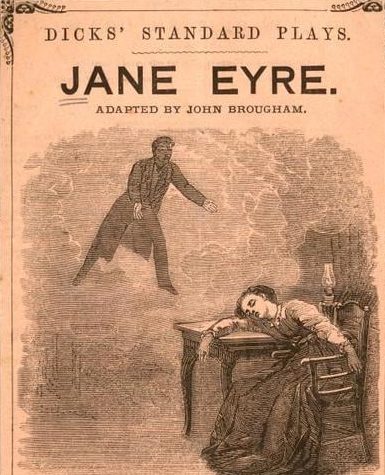
“I would always rather be happy than dignified.” From Charlotte Brontë’s Jane Eyre, this short but impactful quote shows great eagerness and desire for happiness. It is sufficient to say that it also encapsulates Jane Eyre and the identity of Charlotte Brontë herself.
According to the Internet Public Library, Charlotte Brontë was the third daughter among six siblings. Brontë’s mother, Maria Branwell, passed away at an early age, and her father, a clergyman, showed indifference to his children. Thus, the nurturing of young Brontë siblings was completely taken over by their irritable aunt.
However, their aunt never acquired any love for them; instead, she treated them as a troublesome obstacle in her life. Therefore, the sisters were sent to a school for the daughters of poor clergymen during their adolescence. The starkness and cruelty of the Lowood boarding school, as described by Brontë in “Jane Eyre,” likely drew from her own experiences. In her novel, the protagonist, Jane Eyre, expresses gratitude for meager meals of coarse bread and water while enduring the cold with a lack of clothing. However, nothing could compare to the harsh treatment imposed by Reverend Brocklehurst, the overseer of Lowood School where Eyre studied. Brocklehurst, also a clergyman and the head of the school, labeled Eyre as wicked and predicted her descent into hell. While the exact motivation of Brocklehurst in the novel is not explicitly related to specific figures, the Prosperol’s Isle claimed that it is predicted Brontë’s father was the inspiration for building the character.
One of the most vividly portrayed aspects of Charlotte Brontë’s “Jane Eyre” is the fear of winter. The novel details how Eyre and the students at Lowood struggled against the harshness of winter. Diseases like fever and tuberculosis spread rapidly due to the communal living conditions in the boarding school, resulting in the loss of lives, including that of multiple students. Among them was Helen, a friend of Eyre. Despite being on the edge of death, Helen continued to wait for her father who never came. Indeed, Brontë’s two sisters, Maria and Elizabeth, also lost their lives at the school. The deep affection depicted by Brontë for Jane Eyre towards Helen and her despair over Helen’s death may well be a reflection of mourning and longing for her sisters who lost their lives at a young age.
On the other hand, The Victorian Literary Studies Archive stated that amidst the dreadful chaos and disease, Brontë and her younger sister Emily, grabbing onto the last straw, sent a letter to their father, who had forced them into hell with his actions, asking for assistance. Upon receiving the letter, their father took them out of school as they requested. However, her father was more of an antagonist than an altruist. His assistance to the sisters was merely out of the necessity to have them as caregivers in his old age, rather than genuine concern for their well-being. At that time, Brontë’s occupation upon leaving school was that of a governess, just like Eyre in her novel. Unlike the competent and respected governess Eyre, Brontë was incompetent and unsuccessful. A governess was one of the few female professions available at the period, and it was considered slightly superior to a servant. While Eyre, working as a governess, fell in love with the charming man Rochester, reality for Brontë was far from a romantic fantasy. Unfortunately, those around Brontë may have taught her to worship God and to bow her head to others, but they failed to teach her about love.
Hence, people wondered how Brontë, who remained single all her life, could depict a character like Rochester. It was surprising to see such an author who was sheltered, extremely religious, and romantically inexperienced depicting a character like Rochester. Rochester is magnificently charming, romantic, and attractive. How can someone with minimal love experience be so keenly aware of romance? While Rochester is Charlotte’s imaginary character, there is still a possibility that he was inspired by someone to some extent. According to The Marginalian, Brontë fell deeply in love with her former French tutor, Heger, who was already married. She pathologically wrote him letters and pursued him, but her love failed. During this time, Brontë developed deep resentment towards his wife, Madame Heger. Perhaps for that reason, in “Jane Eyre,” there is a hidden wife of Rochester, Bertha Mason, who interferes with Jane and Rochester’s love. Possibly, Brontë might have wanted to defy conventions and prove how pure and noble her love was by insulting Madame Heger. This further supports the argument that Heger may have served as a motive for Rochester.
In this manner, Brontë conveyed her unfulfilled love and desires, intertwining them with her own life through Jane Eyre. Now, returning to the beginning, the passage about choosing happiness over dignity can be understood more clearly. Charlotte, who experienced a childhood marked by unhappiness and a life where love ended in failure, sought happiness more than anyone else.












































































































































